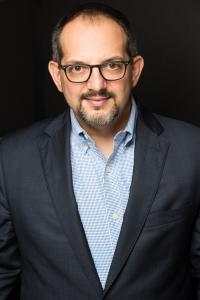“What do you want to be when you grow up?”
This is the questions adults use to torment little children.
What did you want to be when you grew up?
I had a number of answers to that question: Train engineer, fighter pilot, doctor, film director, and rock star are all on the list I remember.
What if we changed the question?
What if we replaced the word want, with a different concept?
What if we asked: What am I supposed to be when I grow up?
The Upside and Downside of Should.
The word “supposed” replaces my wants and desires with a sense of destiny and responsibility. This “should” has a downside and an upside.
The downside of “supposed” is that it could feed fears, sometimes irrational, that we are wasting our lives because we somehow missed that one dream job opportunity. It could feed regret because as we look back on our careers, we see places where we “zigged instead of zagged” and therefore missed a better path.
Another issue with “supposed” is the question of “who?” Who do we trust to show us what we should or are supposed to do? The short answer: no one. I realize this is tricky and there are many legitimate reasons why we are skeptical that someone else can answer these questions for us. But by the end of this post, I will propose two power questions that reveal our “should,” two questions we can use to get clarity around should.
There are also upsides to the “supposed to be” approach. When we have clarity around our work path should, we have the confidence and grit to push through adversity and breakthrough to deep productivity in our work. If we count on God to use his many means to reveal our should, then we find the burden of figuring the vocation question out is not our own. Tremendous relief is yours when you offload the weight of a do it yourself approach to career wisdom and strategy.
So how do we know our should?
In Lee Hardy’s great book, The Fabric of this World, he demonstrates that there are two foundational questions that answer the “what am I supposed to do for work,” question.
Hardy says that “Vocation is determined by the gifts and talents God has given each person—vocation is using those gifts for your neighbors good…Our obligation is to find a station in life where our gifts can indeed by employed for the sake of our neighbors good. Station is no longer fixed but must be judged by its suitability as an instrument of social service.
So the first question I must answer to flesh out my should is this: “What has God given me gifts and talents to do well?”
The answers to this question are the foundation of calling and vocation.
Why do you want to pursue at a career at which you’ll never excel?
Why would it be good to bring more mediocrity to the world?
Why wouldn’t you want to clearly and comprehensively know the kind of value you can bring to the talent marketplace?
Growing up
Growing up into a sense of vocational freedom and confidence requires three moves (the 3rdcoming in my next post). For now consider the benefits of:
- Replacing the “want” with a “should.”
- Rigorously building our careers on proven talent and abilities.
How about you, what do you think you’re supposed to be when you grow up?
 Dr. Chip Roper writes Marketplace Faith from New York City, where he is the Founder and President of the VOCA Center. Chip is passionate about making work better by empowering clients with a keen sense of vocational identity. In service of this vision, Dr. Roper provides coaching, training, and consulting to individuals and organizations in NYC and beyond. Download information about his work as an executive coach and VOCA’s Calling Discernment Program visit our faith-based website at vocacenter.org and our market-facing menu of services at www.vocacenter.com.
Dr. Chip Roper writes Marketplace Faith from New York City, where he is the Founder and President of the VOCA Center. Chip is passionate about making work better by empowering clients with a keen sense of vocational identity. In service of this vision, Dr. Roper provides coaching, training, and consulting to individuals and organizations in NYC and beyond. Download information about his work as an executive coach and VOCA’s Calling Discernment Program visit our faith-based website at vocacenter.org and our market-facing menu of services at www.vocacenter.com.












